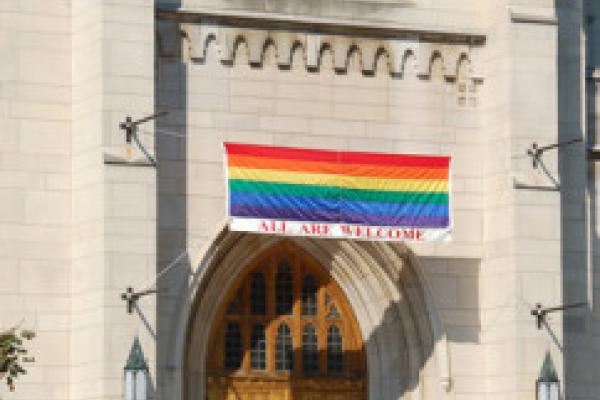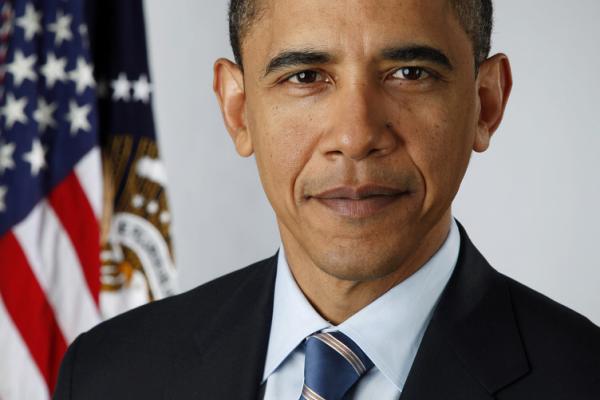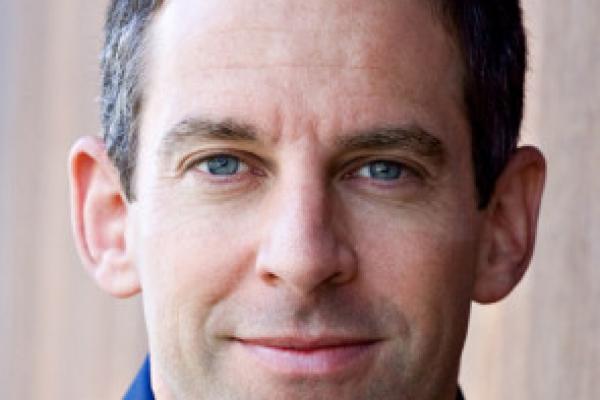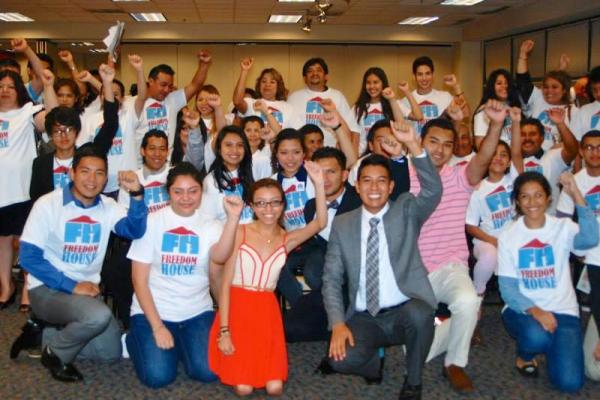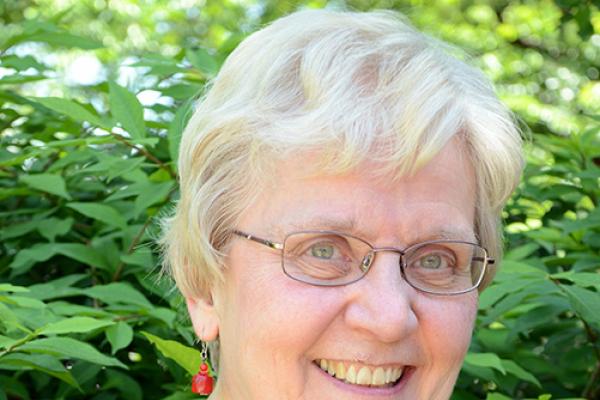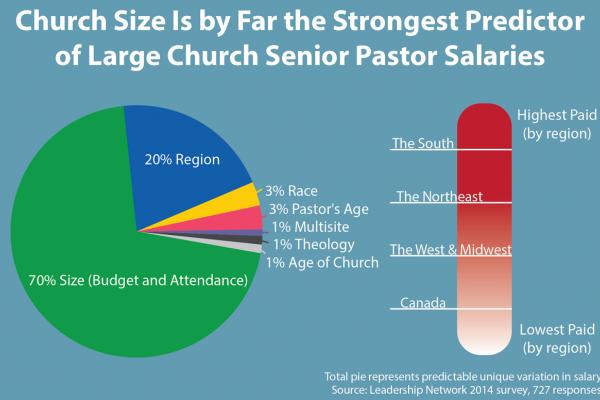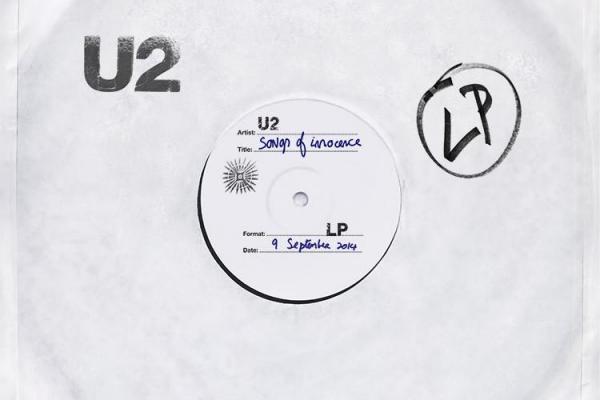U.S. religious congregations are marching to their own drums now more than ever.
The National Congregations Study‘s latest look at the country’s churches, synagogues and mosques — the third wave of studies that began in 1998 — finds more congregations:
- Open their doors to gays and lesbians in active membership and in leadership.
- Show racial and ethnic diversity in the pews.
- Encourage hand-waving, amen-shouting, and dancing-in-the-aisles during worship.
- Disconnect from denominational ties doctrines and rules that might slow or block change.
The study, released Thursday (Sept. 11), draws on interviews with leaders at 1,331 nationally representative congregations and updates data from 1998 and 2006 studies. Non-Christian congregations were included in the study but there are too few for statistical analysis by topics.
The following are President Barack Obama's remarks, as prepared for delivery, on the threat of the ISIL, delivered on Wednesday evening.
My fellow Americans – tonight, I want to speak to you about what the United States will do with our friends and allies to degrade and ultimately destroy the terrorist group known as ISIL.
As Commander-in-Chief, my highest priority is the security of the American people. Over the last several years, we have consistently taken the fight to terrorists who threaten our country. We took out Osama bin Laden and much of al Qaeda’s leadership in Afghanistan and Pakistan. We’ve targeted al Qaeda’s affiliate in Yemen, and recently eliminated the top commander of its affiliate in Somalia. We’ve done so while bringing more than 140,000 American troops home from Iraq, and drawing down our forces in Afghanistan, where our combat mission will end later this year. Thanks to our military and counterterrorism professionals, America is safer.
Still, we continue to face a terrorist threat. We cannot erase every trace of evil from the world, and small groups of killers have the capacity to do great harm. That was the case before 9/11, and that remains true today. That’s why we must remain vigilant as threats emerge. At this moment, the greatest threats come from the Middle East and North Africa, where radical groups exploit grievances for their own gain. And one of those groups is ISIL – which calls itself the “Islamic State.”
Eight years ago this Sept. 12, Pope Benedict XVI delivered a lecture at the University of Regensburg in Bavaria in which he seemed to diagnose Islam as a religion inherently flawed by fanaticism.
It was an undiplomatic assertion, to say the least — especially coming a day after the 9/11 anniversary — and it sparked an enormous outcry among Muslims and came to be seen as one of a series of missteps that would plague Benedict’s papacy until he resigned last year.
Now, with the Islamic State on the march in the Middle East, leaving a trail of horrifying brutality and bloodshed that has shocked the world, some of Benedict’s allies on the Catholic right are saying, in effect, “He told you so.”
“Regensburg was not so much the work of a professor or even a pope,” wrote the Rev. Raymond de Souza in a column for the National Catholic Register, a conservative publication. “It was the work of a prophet.”
Uber-atheist Sam Harris is getting all spiritual.
In his new book, “Waking Up: A Guide to Spirituality Without Religion,” the usually outspoken critic of religion describes how spirituality can and must be divorced from religion if the human mind is to reach its full potential.
“Our world is dangerously riven by religious doctrines that all educated people should condemn,” he writes in the book, but adds: “There is more to understanding the human condition than science and secular culture generally admit.”
The prescription, Harris holds, is Buddhist-based mindfulness meditation. A Stanford-trained neuroscientist, Harris is a long-time practitioner of Buddhist meditation. He said everyone can, through meditation, achieve a “shift in perspective” by moving beyond a sense of self to reach an enlightening sense of connectedness — a spirituality.
"Whoever welcomes one such child in my name welcomes me, and whoever welcomes me welcomes not me but the one who sent me.” —Mark 9:37, NRSV
I was raised in a family with strong beliefs in our faith. It is because of my faith that I continue to strive for a better future and do good to others. This is why I’m so passionate for my advocacy in education, regardless of gender, race, and immigration status.
When I lived in Mexico, I thought about America every day. To me, America was a country of freedom, a country where every dream could come true. My grandparents waited 12 years to get their visas. The wait was agonizing; every year we faced poverty and struggle in Zacatecas. With every year, my dreams of a better life in America got farther and farther away. The feeling of hopelessness was overwhelming and pushed me to attempt suicide.
In that moment, I turned to faith. My family came to my aid and helped me through. Knowing how desperate for opportunity I had become, my parents reached out to my aunt in the United States. Together, they saved enough money to pay for my visa application. I finally had a chance at a life outside of our small family farm.
It was the summer of 2009 when I finally arrived in America. I was 16.
Sit down and shut up.
That’s the message of a campaign launched Sept. 8 by the American Humanist Association, asking Americans to refrain from standing and reciting the Pledge of Allegiance until Congress removes the phrase “under God.”
The 29,000-member humanist activist group, which also advocates on First Amendment issues, holds that the phrase “under God” is an unconstitutional establishment of religion.
“Until the Pledge is restored to its inclusive version, we can take it upon ourselves to refuse to participate in what’s become a discriminatory exercise,” the campaign’s website, Don’t Say the Pledge, says. It also describes the current pledge as “twisted, with divisive religious language that implies true patriots must be believers.”
In November, Sister Maureen Fiedler hand-delivered a letter to Pope Francis’ ambassador in Washington, D.C., urging the pontiff to renounce a series of 15th-century church documents that justify the colonization and oppression of indigenous peoples.
She doesn’t know if the letter made it to the Vatican. But she’s hopeful a recent resolution by the Leadership Conference of Women Religious will spur the pope to repudiate the centuries-old concept known as the “Doctrine of Discovery.”
“When I learned about it, I was horrified,” said Fiedler. As a member of the Loretto Community, a congregation of religious women and lay people, Fiedler first heard of the doctrine when her order marked its 200th anniversary by challenging “the papal sanctioning of Christian enslavement and power over non-Christians.”
Large churches in the South tend to pay their senior pastors the highest salaries, a new survey finds.
That’s one of the conclusions on churches and finances released Sept. 9 by Leadership Network, a Dallas-based church think tank, and the Vanderbloemen Search Group, a Houston-based executive search firm for churches and ministries. A total of 727 North American churches with attendance ranging from 1,000 to more than 30,000 answered questions, more than double the number of congregations featured in previous studies.
The survey found that 14 percent of large churches have a financial bonus structure for their top leader. And one in five of the big congregations find ways to collect their money other than passing the proverbial offering plate.
Perhaps you heard. U2 has a new album. You can download it from iTunes for free right now. Go. I'll wait. It's free.
Yes, free. This is what has my mind spinning right now. Bono wrote:
"It’s also free to everyone on iTunes thanks to Apple. To celebrate the ten year anniversary of our iPod commercial, they bought it as a gift to give to all their music customers."
So, free to us thanks to the largesse of Apple. Why would that be? Well:
"We’re collaborating with Apple on some cool stuff over the next couple of years, innovations that will transform the way music is listened to and viewed. We’ll keep you posted. If you like Songs of Innocence, stay with us for Songs of Experience. It should be ready soon enough … although I know I’ve said that before …"
I’ve had the chance to speak with author and international peace activist John Paul Lederach about his book, Reconcile: Conflict Transformation for Ordinary Christians. The book, updated from an earlier edition with a new introduction from Bill and Lynne Hybels and additional stories, is a powerful guide on how to seek and realize peace among us on both local and global scales.
Having traveled the world brokering peace agreements between governments and rebel groups, and having risked his own lives and that of his family for the sake of reconciliation, Lederach speaks prophetically to difficult issues facing us today in a way that few can.
From Gaza to Iraq and even Ferguson, Mo., we want to know: what do we do now? Thankfully John Paul Lederach offers us both the hope and the tools to begin achieving reconciliation, wherever we are. In our discussion below we talk about his book, which is capturing the attention and imaginations of leaders everywhere.
